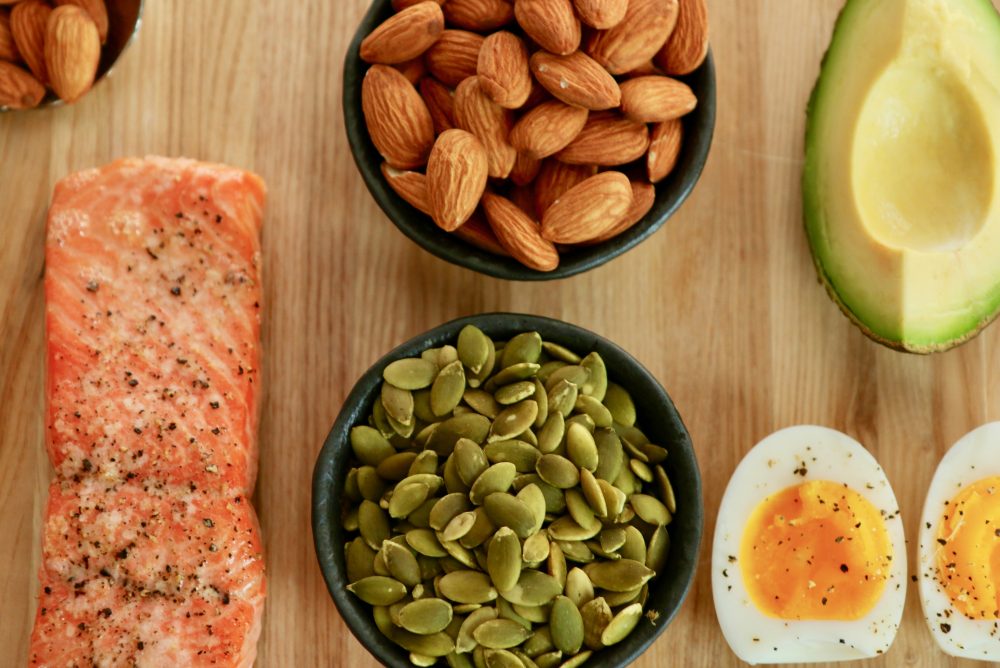
You’ve heard, googled, and read about all the popular players: Atkins, South Beach, Whole30, the entire Paleo & Ancestral movement. The information explosion surrounding ketosis and very low carbohydrate consumption continues to grow and expand through trendy diet books, articles, podcasts, and social media exposure.
Subsequently, there has been a widespread shift in mainstream health coverage toward the consumption of higher fat foods (hello coconut oil, bulletproof coffee, & avocado), modification and/or restriction of carbohydrate intake, and reduction in added sugars. Recently, more and more questions are popping up surrounding the ketogenic diet, its practical implementation, health benefits and concerns, and implications for long term results
We’re here to answer the top five trending questions on Ketosis & give our recommendations to you!
The ketogenic diet has been around for over 100 years. It was first introduced to treat drug resistant forms of epilepsy due to its anticonvulsant effects on children. Research over the last decade has proven that the ketogenic diet is effective for weight loss (mostly in the short term) and has pointed to its therapeutic potential for other pathological conditions including cancer and cognitive diseases.
Ketosis is the metabolic process where stored fat is broken down into molecules called ketone bodies; simply stated, ketosis occurs when the body’s energy metabolism shifts from burning glucose (sugar) to burning stored fat. Ketosis generally occurs after reducing carbohydrates below 20- 50 grams for multiple days. Once glycogen stores are depleted the cells of the brain, nerves, and blood can no longer rely on their preferred energy source (glucose). In a fasted environment, the central nervous system (CNS) is forced to use alternative energy substrates through the breakdown of fatty acids into the bloodstream. The metabolic byproducts of the incomplete breakdown of fats are called ketone bodies, which are subsequently used for fuel.
The weight loss effect from Ketosis is promoted through several mechanisms. These include:
In a strict ketogenic protocol, the majority of calories come from fat and protein. The main foods in a ketogenic diet include: high fat meat, eggs, oily fish, full fat cream and some yogurts, butter, nuts, seeds, coconut oil, and MCT oil to name a few. The diet has trace amounts of carbohydrates usually delivered in the form of vegetables and vegetable fiber. Variation in ketogenic ratios and corresponding carbohydrate levels is becoming more prevalent. Strict ketogenic diets suggest dropping carbohydrate consumption under 20 grams, whereas more lenient protocols allow anywhere from 50-150 grams of carbohydrate per day. For reference, most Americans consume over 300 grams of carbohydrates per day, which is roughly 60% of a 2,000 calorie diet.
In short, the ketogenic diet is extremely restrictive and most individuals following such programs experience barriers with adherence and sustainability. There are typically adverse side effects associated with ketogenic diets which include: fatigue (especially if physically active), nausea, bad breath, constipation, low blood pressure, & fetal harm during pregnancy. Although mindful consumption of carbohydrates is very beneficial to weight and health measurements; for most individuals following a ketogenic diet is unrealistic, especially in the long term. WeCollab has a strong stance that whole food consumption is superior to isolation and/or restriction of macronutrients. We believe health and wellness is better attained through building a sustainable eating program which complements your nutrient needs and lifestyle.
It’s important to note that the ketogenic diet possesses risk to certain groups.
These groups include:
In contrast, there is strong research that ketogenic protocols (under the supervision of a physician) may benefit certain individuals.
These groups include:
Have a question about Keto? Let us know!
xx,
WeCollab
Resources:
Barañano, K.W. and Hartman A. (2008). The Ketogenic Diet: Uses in Epilepsy and Other Neurologic Illnesses. Curr Treat Options Neurol. 2008 Nov; 10(6): 410–419.
Campos, M. Ketogenic diet: Is the ultimate low-carb diet good for you? Harvard Health Blog. July 27, 2017.
Ketogenic diet: Is the ultimate low-carb diet good for you?
Paoli, A. Rubini, A. and Grimaldi K. A. (2013). Beyond weight loss: a review of the therapeutic uses of very-low-carbohydrate (ketogenic) diets. Eur J Clin Nutr. 2013 Aug; 67(8): 789–796.Published online 2013. Jun 26.
Rolfes, Pinna & Whitney. (2012). Understanding Normal and Clinical Nutrition. Belmont, CA. Wadswith, Cengage Learning.
Saslo,L.R. et al. (2017). An Online Intervention Comparing a Very Low-Carbohydrate Ketogenic Diet and Lifestyle Recommendations Versus a Plate Method Diet in Overweight Individuals With Type 2 Diabetes: A Randomized Controlled Trial. J Med Internet Res. 2017 Feb 13;19(2):e36.
Waldman, H.S, Krings B., Smith, J.W., &, McAllister, M. J. (2018). A shift toward a high-fat diet in the current metabolic paradigm: A new perspective. Nutrition. 2018 Feb;46:33-35.